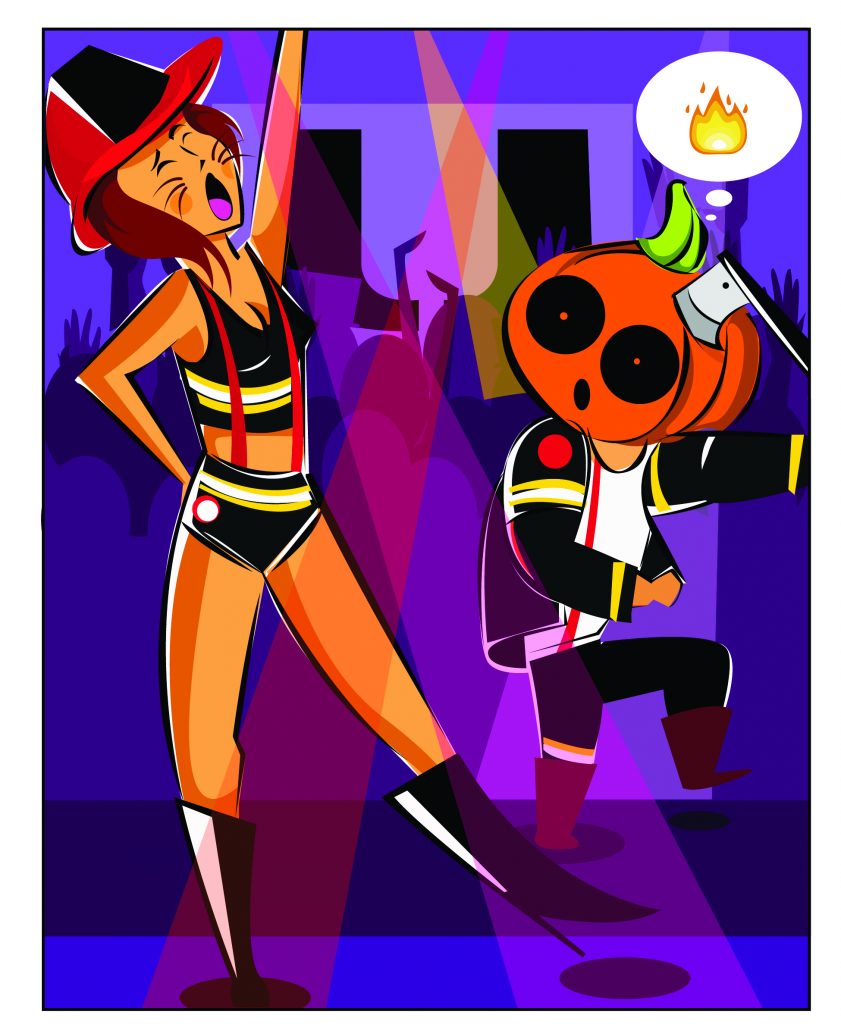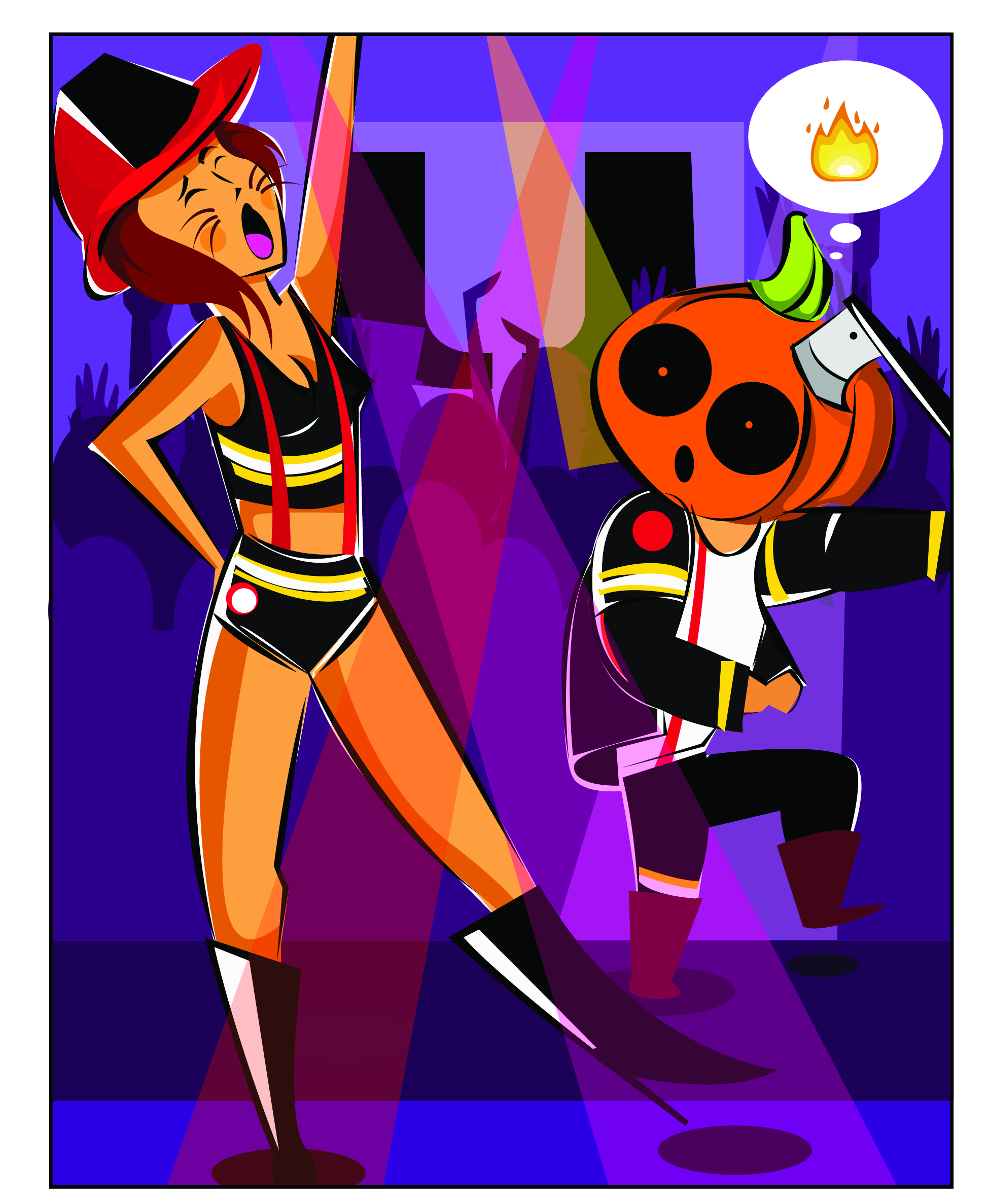
It’s a few days before Halloween. You scramble to pick up a last-minute costume at a local party store, but you’re surprised by the limited options: sexy firefighter, sexy police officer, sexy nurse. The list goes on.
You imagine hosing down a burning house in thigh-high boots, fishnets and a lacy bra – a bit counter-intuitive, perhaps – but you don’t think too much of it and proceed to buy the costume.
Every year, women make a choice: they can wear sexy, revealing costumes, or they can opt for conservative garb. The two sometimes clash, like in “Mean Girls,” when Cady goes to the Halloween party dressed as a zombie bride and is shocked to find her friends dressed as sexy mice and kittens.
While there are sexy men’s costumes, the pervasiveness of women’s sexy costumes is astounding. Men can opt for funny or scary costumes, but many times, women can’t find a single “normal” get-up in a party store.
This discrepancy is so ingrained in our culture we don’t think twice about it.
“Sexism has long been a tradition in costume culture,” psychology major Lindsay Cohen said. “Short dresses and pants, lots of cleavage. Some women choose to own it … but for those who aren’t comfortable doing that, there aren’t many options.”
Sissi Chinea, a 20-year-old psychology and English major, agreed that there is a divide between the genders when it comes to Halloween costumes.
“For women to look sexy and for men to be comfortable or funny is pervasive throughout the fashion industry,” Chinea said. “Women’s value is on their beauty, while men’s is on who they are as people.”
Should we condemn this cultural norm, or is it good that women can now show their skin? The answer comes down to whether revealing costumes are empowering or a result of the pressure to be attractive.
Claire Oueslati-Porter, a women’s and gender studies professor at UM, said that the pervasiveness of sexy women’s costumes comes from the conflation of women’s self-empowerment and sexualization.
Women “should not define their self-esteem and how sexy they are by men,” Oueslati-Porter said. She added that it’s important that “nobody feels coerced by cultural norms,” and that women know they have options besides sexy costumes.
The discrepancy between men’s and women’s costumes can be harmful for those who don’t adhere to traditional gender roles, too.
“In a way, it’s reinforcing gender binaries,” said Oueslati-Porter about this clear contrast. “[It leads to] erasure of people who are interested in challenging the gender binary.” Oueslati-Porter referenced the recent Caitlyn Jenner costumes that became popular despite being deemed offensive.
Yet, others feel that Halloween is a day to break free from roles and expectations.
“Halloween unifies two societies … by disguising the non-queers from the queers via costumes,” said Sam Wortman, a 22-year-old creative writing major.
Wortman explained that Halloween is a day when people of all gender identities and sexualities can wear anything and still fit in.
On the whole, Oueslati-Porter believes Halloween costumes can be divisive. “In the larger society, it might reinforce heterosexism,” Oueslati-Porter said.
So what should we do about this discrepancy?
Let people, particularly women, wear whatever they feel most comfortable and confident in. This might be a scantily-clad Catwoman costume or a head-to-toe covering, such as a nun’s black dress. While many of the female costumes are comically exaggerated, women should be able to wear revealing outfits if that’s what they enjoy. Discouraging individuals from wearing sexy costumes entirely leads us down a rabbit hole of slut-shaming and victim-blaming.
“Some women might just want to emphasize their beauty based on what they value personally, regardless of the patriarchal norms,” Chinea said.
Cohen, who is now 20 years old, once dressed up as Spyro, a titular dragon character in a popular video-game series, when she was six.
“I remember a number of houses I went trick or treating to thought I was a boy because I wasn’t a princess or an angel,” Cohen said. “The mask didn’t help with that either, but I had a blast either way, whether I was a ‘boy’ or ‘girl’ Spyro.”







